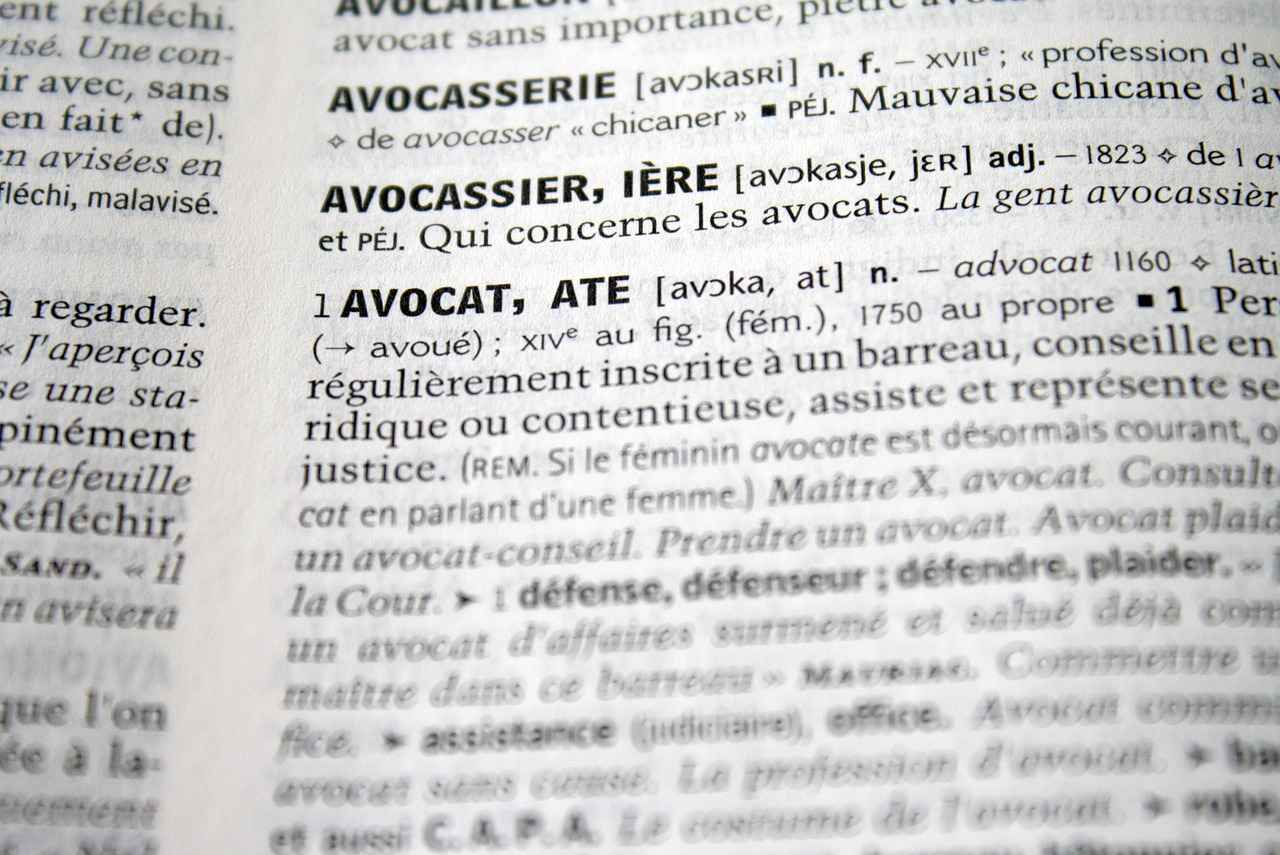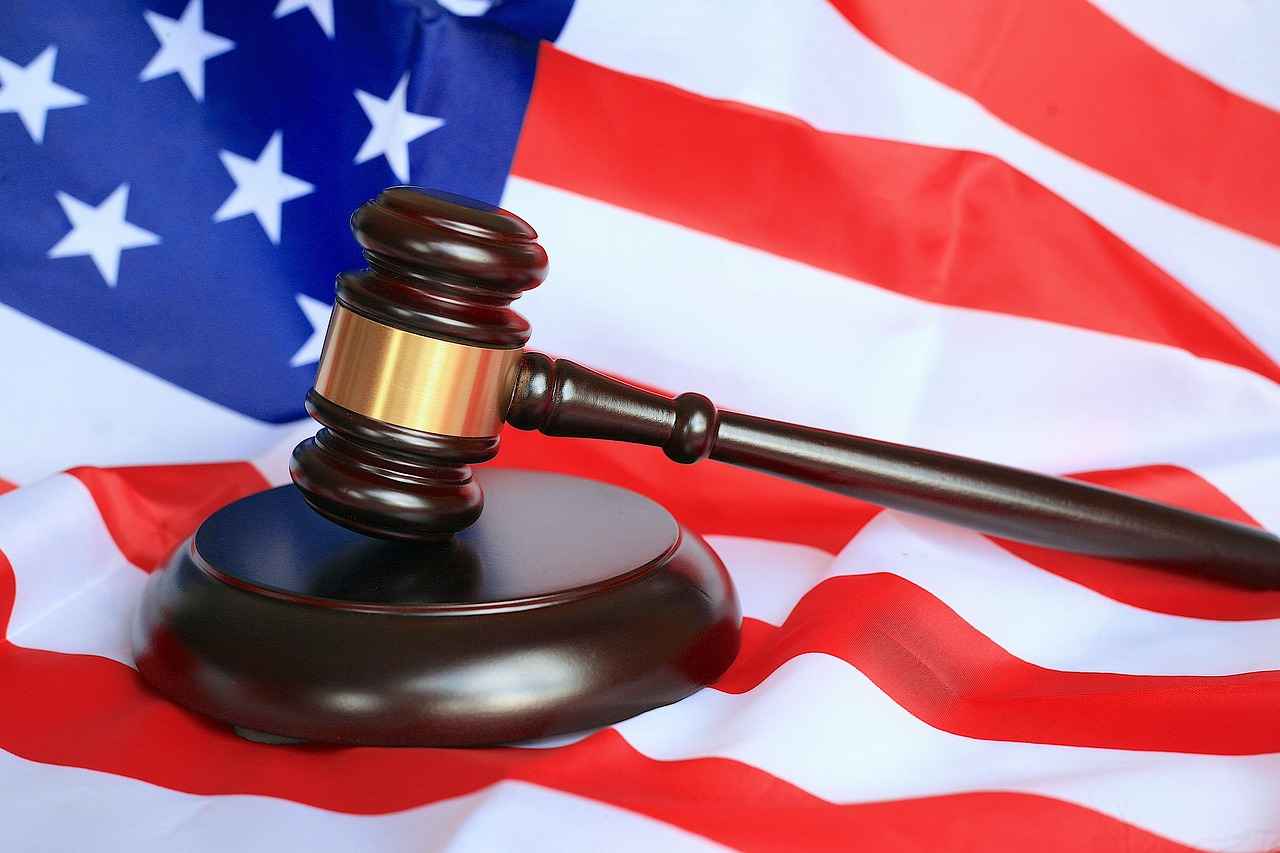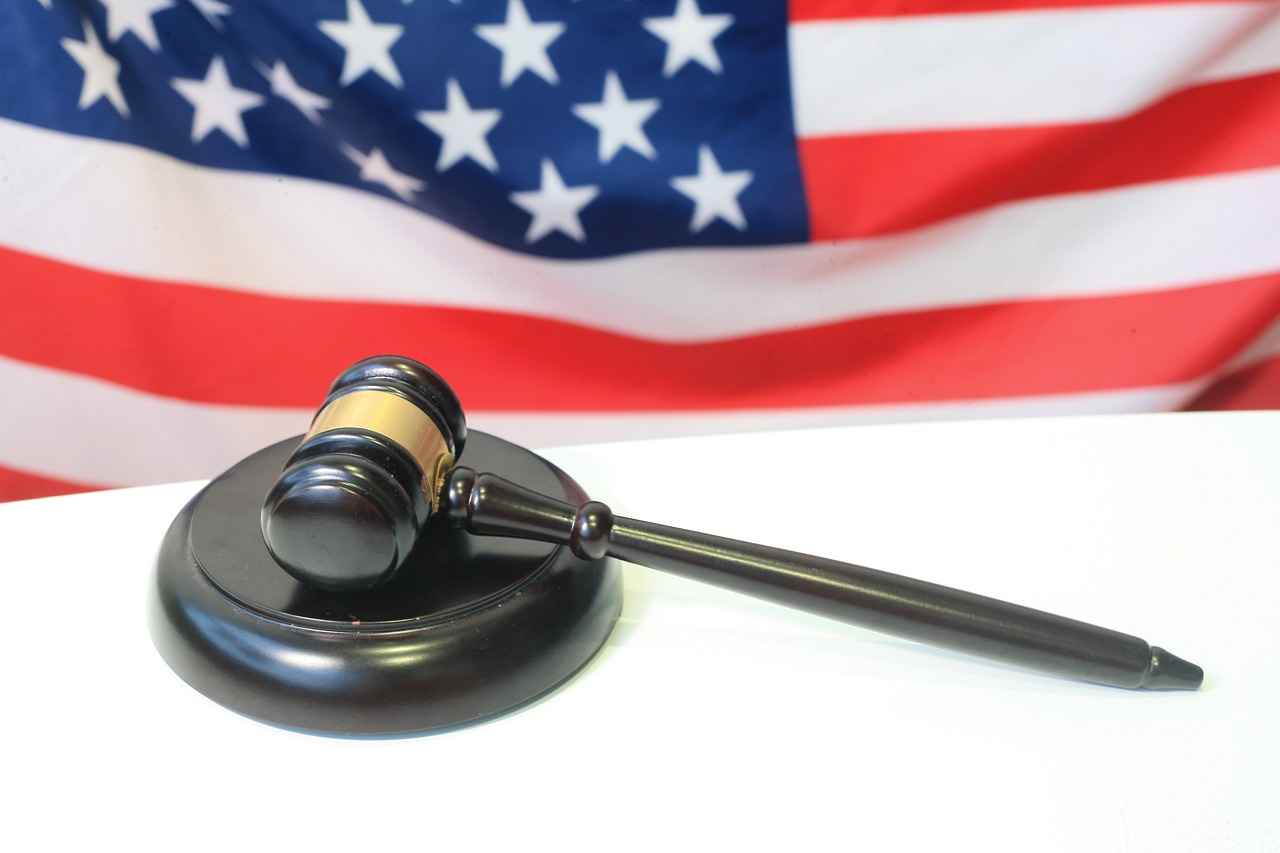This article explores the most common types of legal cases in the U.S. and offers expert guidance on finding qualified attorneys in Jersey City and beyond. Navigating the legal landscape can be daunting, but understanding the different types of legal cases and knowing how to find the right attorney can significantly ease the process. With over 30 years of experience in the U.S. legal system, I aim to provide you with valuable insights into various legal matters and how to secure the best legal representation.
Understanding Personal Injury Cases
Personal injury cases are prevalent in the U.S., encompassing incidents where individuals seek compensation for injuries caused by another party’s negligence. Common examples include car accidents, slip and fall incidents, and workplace injuries. To navigate these cases effectively, victims should seek attorneys who specialize in personal injury law and have a proven track record of successful settlements or verdicts.
Medical Malpractice: What You Need to Know
Medical malpractice occurs when healthcare professionals fail to provide adequate care, resulting in harm to patients. This can include surgical errors, misdiagnoses, or prescription mistakes. It’s essential to find a lawyer with expertise in medical malpractice, as these cases often require a deep understanding of medical standards and practices.
Breach of Contract: Legal Implications and Remedies
Breach of contract cases arise when one party fails to fulfill their contractual obligations. This can involve anything from business agreements to service contracts. Individuals should look for attorneys who are well-versed in contract law and have experience in resolving disputes through negotiation or litigation.
Property Disputes: Navigating Legal Challenges
Property disputes often stem from disagreements over ownership, boundaries, or usage rights. Whether dealing with real estate transactions or landlord-tenant issues, understanding the legal framework is vital. Seek attorneys who specialize in real estate law and can provide guidance on resolving these conflicts effectively.
Landlord-Tenant Disputes: Rights and Responsibilities
Landlord-tenant disputes are common in rental agreements. Knowing your rights and responsibilities can help both parties navigate conflicts. Attorneys specializing in landlord-tenant law can assist with lease agreements, eviction processes, and tenant rights, ensuring fair resolutions.
Defamation: Understanding Libel and Slander
Defamation cases involve false statements that harm an individual’s reputation. Understanding the nuances between libel (written defamation) and slander (spoken defamation) is essential for those considering legal action. A lawyer with experience in defamation cases can help navigate the complexities of proving harm and intent.
Employment Disputes: Protecting Workers’ Rights
Employment disputes can arise from various issues, including wrongful termination, discrimination, and harassment. Employees should seek attorneys who specialize in employment law and are familiar with federal and state labor regulations to ensure their rights are protected.
Product Liability: Holding Manufacturers Accountable
Product liability cases arise when defective products cause harm to consumers. Understanding the legal standards for these cases can help victims seek compensation for their injuries. Attorneys with expertise in product liability can assist in proving negligence and securing fair compensation.
Wrongful Death: Seeking Justice for Lost Loved Ones
Wrongful death cases allow families to seek compensation for the loss of a loved one due to another’s negligence. Understanding the legal process is essential for pursuing justice. Families should seek attorneys who are compassionate and experienced in handling wrongful death claims.
Class Action Lawsuits: Collective Legal Action
Class action lawsuits enable groups of individuals to sue for collective damages. This legal mechanism can empower victims of widespread harm to seek justice together. Attorneys specializing in class actions can guide individuals through the complexities of these cases and help them understand their rights.
Assault and Battery: Legal Definitions and Consequences
Assault and battery cases involve intentional harm or threats of harm against individuals. Knowing the legal definitions and potential consequences can help victims understand their options. Attorneys with experience in criminal law can provide guidance on how to proceed with such cases.
Cybercrime: Navigating the Digital Legal Landscape
Cybercrime encompasses a range of illegal activities conducted online, from identity theft to hacking. Understanding the legal implications and protections available is crucial in today’s digital world. Lawyers specializing in cyber law can help victims navigate the complexities of these cases.
Finding the Right Lawyer in Jersey City
Finding a qualified attorney in Jersey City involves knowing what credentials to look for, utilizing reputable platforms, and understanding the red flags to avoid during your search. Consider seeking recommendations from trusted sources, checking online reviews, and verifying the attorney’s credentials through state bar associations. Always ensure that the attorney has experience relevant to your specific legal needs.

Understanding Personal Injury Cases
Understanding personal injury cases is essential for anyone who has suffered an injury due to someone else’s negligence. These cases can arise from a variety of incidents, including car accidents, slips and falls, workplace injuries, and medical malpractice. The primary goal in personal injury law is to seek compensation for the injured party, which can cover medical expenses, lost wages, and pain and suffering.
In personal injury cases, the burden of proof lies with the victim. This means that the injured party must demonstrate that the other party was negligent and that this negligence directly caused their injuries. To establish negligence, the following elements must typically be proven:
- Duty of Care: The defendant owed a legal duty to the victim.
- Breach of Duty: The defendant breached that duty through their actions or inactions.
- Causation: The breach of duty directly caused the injury.
- Damages: The victim suffered actual damages as a result.
Victims of personal injury should take several steps to protect their rights:
- Seek Medical Attention: Always prioritize your health. Medical records can serve as crucial evidence in your case.
- Document Everything: Keep detailed records of the incident, including photographs, witness statements, and any correspondence related to the case.
- Consult an Attorney: Engaging a qualified personal injury lawyer can significantly improve your chances of a successful outcome. Look for attorneys with experience in similar cases and a proven track record.
When searching for a personal injury attorney, consider the following:
- Experience: Look for attorneys who specialize in personal injury law, particularly in your specific type of case.
- Reputation: Check online reviews and testimonials, and ask for referrals from friends or family.
- Contingency Fees: Many personal injury lawyers work on a contingency fee basis, meaning they only get paid if you win your case. Make sure to discuss fees upfront.
In conclusion, navigating personal injury cases requires a clear understanding of legal principles and the ability to demonstrate negligence. By following the right steps and working with a qualified attorney, victims can seek the compensation they deserve for their injuries.

Medical Malpractice: What You Need to Know
Medical malpractice refers to situations where healthcare professionals, including doctors, nurses, and hospitals, fail to provide the standard of care expected in the medical community, leading to significant harm or injury to patients. Understanding the nuances of these cases is crucial for anyone seeking to hold medical providers accountable for their actions.
In the U.S., medical malpractice cases can arise from various circumstances, including misdiagnosis, surgical errors, medication mistakes, and failure to inform patients about risks associated with treatments. These actions can result in severe consequences, including prolonged illness, additional medical expenses, and even death. Therefore, recognizing the signs of potential malpractice is the first step toward seeking justice.
To successfully pursue a medical malpractice claim, the following elements must typically be established:
- Duty of Care: The healthcare provider had a duty to provide care to the patient.
- Breach of Duty: The provider failed to meet the standard of care expected in the medical community.
- Causation: The breach of duty directly caused harm to the patient.
- Damages: The patient suffered actual damages, such as physical pain, emotional distress, or financial loss.
For individuals considering a medical malpractice lawsuit, it is essential to gather comprehensive documentation, including medical records, treatment histories, and any communications with healthcare providers. Consulting with a qualified attorney who specializes in medical malpractice can provide invaluable guidance in navigating the complexities of these cases.
When searching for a medical malpractice attorney in major metropolitan areas like New York City or Los Angeles, consider the following tips:
- Experience: Look for attorneys with extensive experience specifically in medical malpractice cases.
- Reputation: Research their reputation through online reviews and testimonials from previous clients.
- Credentials: Verify their credentials, including board certifications and memberships in professional organizations.
- Consultation: Take advantage of free consultations to assess their expertise and approach.
- Contingency Fees: Understand their fee structure; many medical malpractice attorneys work on a contingency basis, meaning they only get paid if you win your case.
Be cautious of red flags, such as attorneys who make unrealistic promises about the outcome of your case or those who lack the necessary experience in medical malpractice law. Trust your instincts and choose someone who communicates clearly and transparently about the legal process.
In conclusion, medical malpractice is a serious issue that can have devastating effects on patients and their families. By understanding the legal framework surrounding these cases and knowing how to find the right attorney, victims can take the necessary steps toward seeking justice and accountability in the healthcare system.

Breach of Contract: Legal Implications and Remedies
In the realm of legal disputes, breach of contract cases are among the most prevalent. These situations arise when one party fails to fulfill their obligations as outlined in a legally binding agreement. Understanding the nuances of these cases is essential for both individuals and businesses, as it empowers them to protect their interests and seek appropriate remedies.
A breach of contract can occur in various forms, including material breaches, where the failure significantly undermines the contract’s purpose, and minor breaches, which involve less severe violations that do not fundamentally alter the agreement. Each type of breach has specific legal implications and potential remedies.
When faced with a breach of contract, the first step is typically to assess the situation thoroughly. This includes reviewing the contract in detail to identify the specific obligations and determining whether a breach has indeed occurred. If a breach is confirmed, the injured party may pursue several legal remedies, including:
- Damages: Financial compensation for losses incurred due to the breach.
- Specific Performance: A court order requiring the breaching party to fulfill their contractual obligations.
- Rescission: The cancellation of the contract, releasing both parties from their obligations.
It is crucial for individuals and businesses to document all communications related to the breach, as this evidence can be invaluable in legal proceedings. Keeping a detailed record of any attempts to resolve the dispute amicably can also demonstrate good faith in negotiations.
In navigating breach of contract cases, seeking the counsel of a qualified attorney is highly recommended. An experienced lawyer can provide valuable insights into the specific laws governing contracts in your jurisdiction and help you formulate a strategy to address the breach effectively.
When searching for a lawyer to assist with a breach of contract case, consider the following tips:
- Experience: Look for attorneys who specialize in contract law and have a proven track record of handling similar cases.
- Reputation: Research online reviews and testimonials to gauge the lawyer’s reputation within the legal community.
- Consultation: Take advantage of initial consultations to discuss your case and assess the attorney’s approach and compatibility with your needs.
Moreover, be vigilant for potential red flags when hiring a lawyer. These may include:
- Lack of Transparency: Be wary of attorneys who are not forthcoming about their fees, experience, or the potential outcomes of your case.
- High Pressure Tactics: Avoid lawyers who pressure you into making quick decisions or signing contracts without fully understanding the implications.
- Poor Communication: An attorney’s inability to communicate clearly or respond promptly to inquiries can be a sign of future difficulties.
By understanding the implications of breach of contract cases and taking proactive steps to find a qualified attorney, individuals and businesses can safeguard their interests and navigate legal disputes more effectively. Whether you are in a bustling city like New York or a smaller community, the right legal representation can make a significant difference in the outcome of your case.

Property Disputes: Navigating Legal Challenges
Property disputes are a common source of conflict, often stemming from disagreements regarding ownership, boundaries, or usage rights. These disputes can arise between neighbors, family members, or business partners, and can lead to significant legal challenges if not addressed promptly and effectively. Understanding the legal framework surrounding property disputes is essential for anyone involved in such conflicts, as it can help facilitate a resolution that is fair and just.
One of the first steps in navigating property disputes is to gather all relevant documentation. This includes deeds, surveys, and any contracts that pertain to the property in question. Having a clear understanding of the legal boundaries and ownership rights is crucial. Additionally, consulting with a qualified attorney who specializes in property law can provide invaluable guidance and support.
In many cases, property disputes can be resolved through mediation, which allows both parties to discuss their issues in a less formal setting. A mediator can help facilitate communication and negotiation, often leading to a mutually agreeable solution without the need for costly litigation. If mediation fails, the next step may involve litigation, where the dispute is taken to court. This process can be lengthy and expensive, making it essential to weigh the potential outcomes and costs before proceeding.
It’s also important to be aware of the various laws that govern property disputes, which can vary significantly from state to state. For example, some states have specific adverse possession laws that allow a person to claim ownership of land under certain conditions, while others may have strict regulations regarding property boundaries. Understanding these laws can provide critical insight into the potential outcomes of a dispute.
Furthermore, property disputes can often involve emotional elements, particularly when family members or long-time neighbors are involved. It’s vital to approach these situations with a level head and a willingness to compromise. Engaging in open communication and seeking to understand the other party’s perspective can often lead to a more amicable resolution.
In conclusion, navigating property disputes requires a thorough understanding of the legal landscape, effective communication, and often the assistance of a qualified attorney. With the right approach, many disputes can be resolved without the need for litigation, saving both time and resources.

Landlord-Tenant Disputes: Rights and Responsibilities
Landlord-tenant disputes are a prevalent issue in rental agreements, often arising from misunderstandings or disagreements regarding rights and responsibilities. Understanding these rights is essential for both landlords and tenants to effectively navigate conflicts and achieve fair resolutions. This article delves into the common causes of disputes, the legal framework governing these relationships, and practical steps to resolve issues amicably.
Rental agreements are legally binding contracts that outline the terms and conditions of the tenancy. Both parties must adhere to these terms to avoid disputes. Common disputes include issues related to security deposits, repair responsibilities, and eviction procedures. For instance, tenants may feel that their landlord is not fulfilling their obligation to maintain the property, while landlords may believe that tenants are not treating the property with due care.
To prevent misunderstandings, it is crucial for both parties to thoroughly understand their rights. For tenants, this includes the right to a habitable living environment, which means that essential services such as heat, water, and electricity must be maintained. Additionally, tenants have the right to privacy and must be given proper notice before a landlord can enter the rental unit.
On the other hand, landlords have the right to receive rent payments on time and to enforce lease terms. They can initiate eviction proceedings if tenants fail to comply with the rental agreement. However, landlords must follow legal procedures when evicting tenants, including providing adequate notice and filing the necessary paperwork.
When disputes arise, communication is key. Both parties should attempt to resolve issues informally before escalating them to legal action. Keeping a record of all communications, repairs, and payments can be beneficial in case the situation requires legal intervention.
If informal negotiations fail, mediation can be a valuable tool. Many communities offer mediation services specifically designed for landlord-tenant disputes. This process allows both parties to discuss their concerns with a neutral third party who can help facilitate a mutually agreeable solution.
Should mediation not yield satisfactory results, tenants may need to consider legal action. It is advisable for tenants to consult with a qualified attorney who specializes in landlord-tenant law to understand their options and the potential outcomes of pursuing litigation.
In conclusion, landlord-tenant disputes are common but can often be resolved through effective communication and understanding of rights and responsibilities. Both parties should strive to maintain a respectful relationship, as this can lead to a more harmonious living situation and reduce the likelihood of future conflicts.

Defamation: Understanding Libel and Slander
Defamation cases are a significant aspect of the legal landscape, focusing on the protection of an individual’s reputation against false statements. Understanding the distinctions between libel and slander is crucial for those considering legal action in this area.
Defamation is generally categorized into two types: libel, which refers to false statements made in a permanent form, such as written or published content, and slander, which involves false statements made in a temporary form, typically spoken words. Both forms can lead to substantial harm to an individual’s reputation, resulting in emotional distress, loss of income, and social standing.
To successfully pursue a defamation claim, the plaintiff must prove several elements:
- The statement was false.
- The statement was made with a degree of fault, either negligence or actual malice, depending on the status of the plaintiff (public figure vs. private individual).
- The statement caused harm to the plaintiff’s reputation.
Understanding the nuances between these two forms of defamation is essential. For instance, public figures often face a higher burden of proof since they must demonstrate that the false statement was made with actual malice—meaning the defendant knew the statement was false or acted with reckless disregard for the truth. In contrast, private individuals typically only need to show that the defendant was negligent in making the false statement.
When considering legal action for defamation, it is vital to consult with an experienced attorney who specializes in this area of law. Look for a lawyer with a strong track record in handling defamation cases, as they will be familiar with the complex legal standards and nuances involved. Here are some tips for finding the right attorney:
- Research Credentials: Look for lawyers who are members of reputable legal organizations and have experience specifically in defamation law.
- Check Reviews and References: Read reviews from previous clients and ask for references to gauge the attorney’s effectiveness.
- Evaluate Communication Skills: An attorney should be able to explain complex legal concepts in a way that is easy to understand.
- Assess Their Approach: A good attorney will take the time to understand your case and provide a tailored strategy for pursuing your claim.
Additionally, be wary of red flags during your search. Avoid attorneys who guarantee outcomes, as no lawyer can predict the results of a legal case. Be cautious of those who do not provide clear fee structures or who seem more interested in settling quickly rather than pursuing the best outcome for you.
In conclusion, navigating the complexities of defamation law requires a thorough understanding of both libel and slander, as well as the ability to find a qualified attorney who can effectively advocate for your rights. By following the guidelines outlined above, individuals can protect their reputations and seek justice in the face of false statements.

Employment Disputes: Protecting Workers’ Rights
Employment disputes can arise from various issues, including wrongful termination and discrimination. Knowing how to address these disputes is crucial for employees seeking justice. In today’s complex work environment, understanding your rights and the legal framework surrounding employment law is essential for both employees and employers.
Employment disputes often stem from misunderstandings or violations of labor laws. Common issues include unlawful termination, where an employee is fired for reasons that violate federal or state laws, such as discrimination based on race, gender, age, or disability. Additionally, harassment in the workplace can lead to significant legal challenges. Employees must be aware of their rights and the proper channels to report such behavior.
To effectively handle employment disputes, it is important to document all relevant interactions and communications. Keeping detailed records can provide critical evidence if the dispute escalates to legal action. Employees should also familiarize themselves with their company’s policies and procedures regarding grievances and complaints.
When seeking to resolve an employment dispute, consider the following steps:
- Consult with a qualified attorney: Legal representation can help navigate the complexities of employment law. Look for attorneys who specialize in employment disputes and have a successful track record in similar cases.
- Utilize mediation services: Mediation can be a less confrontational way to resolve disputes. Many employers offer mediation as part of their conflict resolution process.
- File a complaint with the appropriate agency: If the issue involves discrimination or harassment, employees can file a complaint with the Equal Employment Opportunity Commission (EEOC) or relevant state agencies.
In major metropolitan areas like New York City and Los Angeles, the competition among attorneys can be fierce. Therefore, it is crucial to vet potential legal representatives carefully. Look for the following credentials:
- Experience: Seek attorneys with extensive experience in employment law.
- Reputation: Check online reviews and testimonials from former clients.
- Professional associations: Membership in organizations like the National Employment Lawyers Association can indicate a commitment to employee rights.
Be cautious of red flags when hiring an attorney. Avoid those who promise guaranteed outcomes or pressure you to settle quickly. A reputable attorney will provide a realistic assessment of your case and help you understand your options without rushing you into a decision.
In conclusion, addressing employment disputes requires a proactive approach. By understanding your rights and seeking qualified legal assistance, you can navigate these challenges effectively and protect your rights as a worker.

Product Liability: Holding Manufacturers Accountable
Product liability is a crucial area of law that addresses the responsibility of manufacturers, distributors, and retailers for injuries caused by defective products. These cases can arise from a wide range of issues, including design flaws, manufacturing defects, and inadequate warnings or instructions. Understanding the intricacies of product liability is essential for victims seeking justice and compensation for their injuries.
In the United States, product liability cases are primarily governed by state laws, which can vary significantly. Generally, there are three main types of product defects:
- Design Defects: These occur when a product is inherently unsafe due to its design, even if it is manufactured correctly.
- Manufacturing Defects: These happen when a product is improperly manufactured, making it different from the intended design.
- Marketing Defects: These involve inadequate instructions or warnings that fail to inform consumers of potential risks associated with using the product.
To successfully pursue a product liability claim, victims must demonstrate that the product was defective and that this defect caused their injury. This often requires gathering substantial evidence and expert testimony, making it essential to engage a qualified attorney with experience in product liability cases.
When searching for a lawyer to handle a product liability case, consider the following:
- Experience: Look for attorneys who specialize in personal injury and product liability law. Their experience can significantly impact the outcome of your case.
- Track Record: Investigate their past cases and success rates. A lawyer with a history of winning product liability cases is more likely to achieve a favorable outcome for you.
- Client Reviews: Read testimonials and reviews from previous clients to assess their satisfaction with the attorney’s services.
- Initial Consultation: Many lawyers offer free consultations. Use this opportunity to gauge their understanding of your case and their approach to handling it.
Additionally, be wary of red flags when hiring a lawyer:
- Lack of Communication: If an attorney is unresponsive or difficult to reach during the initial consultation, this may indicate future communication issues.
- Unclear Fees: Ensure that the attorney provides a clear explanation of their fee structure, including any potential hidden costs.
- Pressure Tactics: Be cautious of lawyers who pressure you into making quick decisions or signing contracts without fully understanding the terms.
In major metropolitan areas like New York City, Los Angeles, and Chicago, finding the right attorney can be challenging due to the sheer number of legal professionals available. Consider using reputable online platforms such as Avvo, Martindale-Hubbell, or the American Bar Association’s lawyer referral service. These resources can help you find qualified attorneys in your area based on specific criteria, including practice area and client ratings.
In conclusion, product liability cases can be complex and challenging, but with the right legal representation, victims can hold manufacturers accountable for their negligence. By understanding the types of defects and knowing how to find a qualified attorney, individuals can navigate the legal landscape more effectively and seek the compensation they deserve.

Wrongful Death: Seeking Justice for Lost Loved Ones
Wrongful death cases are tragic yet pivotal legal matters that allow families to seek compensation for the loss of a loved one due to another party’s negligence. These cases arise from various circumstances, including automobile accidents, medical malpractice, and workplace incidents. Understanding the legal process is essential for families aiming to pursue justice and accountability for their loss.
When dealing with a wrongful death case, it is crucial to comprehend the various elements involved. Firstly, the plaintiff (the family of the deceased) must establish that the defendant’s actions directly contributed to the death. This often requires gathering substantial evidence, including medical records, accident reports, and witness statements. Additionally, the legal framework surrounding wrongful death claims varies by state, making it vital to consult with an attorney who specializes in this area.
In many jurisdictions, wrongful death claims can be filed for a variety of reasons, including:
- Negligent behavior (e.g., car accidents, slip and falls)
- Intentional acts (e.g., assault leading to death)
- Medical malpractice (e.g., failure to diagnose or treat)
- Product liability (e.g., defective products causing fatal injuries)
To successfully navigate a wrongful death case, families should consider the following steps:
- Consult with a specialized attorney: Finding a lawyer with experience in wrongful death cases is crucial. Look for attorneys who have a proven track record of handling similar cases and achieving favorable outcomes.
- Understand the timeline: Each state has a statute of limitations that dictates how long a family has to file a wrongful death claim. It is essential to act promptly to ensure that your case is valid.
- Gather evidence: Collect all relevant documentation that supports your claim. This may include medical records, police reports, and any other pertinent information that demonstrates negligence.
- Assess damages: Consider the financial impact of the loss, including funeral expenses, lost income, and emotional suffering. This assessment will help in determining the compensation you may seek.
Additionally, families should be aware of the potential challenges they may face during the legal process. Insurance companies often aim to minimize payouts, and they may employ tactics to dispute claims. Having a knowledgeable attorney can help counter these strategies and advocate for the family’s rights.
In conclusion, wrongful death cases are complex and emotionally charged. Families seeking justice must be well-informed and prepared to navigate the legal landscape effectively. By consulting with experienced legal professionals and understanding the steps involved, families can work toward obtaining the compensation they deserve for their profound loss.

Class Action Lawsuits: Collective Legal Action
Class action lawsuits serve as a powerful legal mechanism that allows groups of individuals to come together to seek justice for collective grievances. These lawsuits are particularly important in situations where numerous people have suffered similar harm due to the actions of a corporation, government entity, or other organizations. Understanding the intricacies of class action lawsuits can empower victims of widespread harm to pursue justice more effectively.
In a class action lawsuit, a representative plaintiff (or plaintiffs) files a case on behalf of a larger group, known as the “class.” This structure is particularly beneficial because it enables individuals to share the costs of litigation, which can be prohibitively expensive if pursued individually. Furthermore, class action lawsuits can lead to more comprehensive settlements that address the needs of all affected parties.
Common scenarios that often lead to class action lawsuits include:
- Consumer Fraud: When a company misrepresents a product or service, consumers can band together to seek compensation.
- Environmental Disasters: Groups affected by pollution or other environmental harm may join forces to hold responsible parties accountable.
- Employment Practices: Employees facing similar issues, such as wage theft or discrimination, can file a class action to address their grievances collectively.
- Product Liability: When defective products cause harm to many users, a class action can help secure justice for all affected consumers.
To successfully navigate a class action lawsuit, it is essential to understand the legal requirements, including:
- Commonality: There must be common legal or factual issues among the class members.
- Numerosity: The class must be large enough that individual lawsuits would be impractical.
- Typicality: The claims of the representative plaintiff must be typical of the claims of the class.
- Adequacy: The representative must adequately protect the interests of the class.
Finding a qualified attorney to represent you in a class action lawsuit is crucial. Here are some expert tips on how to find the right legal representation:
- Research Experience: Look for attorneys with a proven track record in handling class action lawsuits. Check their case history and outcomes to gauge their effectiveness.
- Seek Recommendations: Ask for referrals from friends, family, or colleagues who have had positive experiences with class action attorneys.
- Check Credentials: Verify the attorney’s qualifications, including their education, bar association membership, and any specialized certifications.
- Read Reviews: Online reviews and testimonials can provide insight into an attorney’s reputation and client satisfaction.
- Consult Multiple Attorneys: Schedule consultations with several lawyers to discuss your case and evaluate their approach and communication style.
It is also important to be aware of potential red flags when selecting a lawyer:
- High Pressure Tactics: Be cautious of attorneys who pressure you to sign contracts or make quick decisions.
- Lack of Transparency: Avoid lawyers who are not forthcoming about their fees, case strategies, or past results.
- Limited Experience: Be wary of attorneys who claim to handle class action cases but lack substantial experience in this complex area of law.
Ultimately, class action lawsuits can provide a vital avenue for justice, allowing individuals to unite against larger entities. By understanding the legal framework and knowing how to find the right attorney, victims can navigate this process more effectively and increase their chances of achieving a favorable outcome.

Assault and Battery: Legal Definitions and Consequences
Assault and battery are often mentioned together in legal contexts, but they represent distinct legal concepts. Understanding the differences between them is crucial for individuals who may find themselves involved in these types of cases.
Assault refers to the act of intentionally causing someone to fear imminent harm. It does not necessarily involve physical contact; rather, it is the threat or attempt to inflict harm that constitutes assault. For example, if someone raises a fist and threatens to hit another person, that can be classified as assault, even if no physical contact occurs.
On the other hand, battery involves actual physical contact. It is defined as the intentional and unlawful use of force against another person, resulting in harmful or offensive contact. This could include hitting, pushing, or any unwanted physical interaction. In legal terms, battery can occur even if the victim does not sustain serious injuries; the mere act of offensive contact is sufficient.
Victims of assault and battery have several options available to them. They can pursue criminal charges against the perpetrator, which can lead to penalties such as fines, probation, or imprisonment. Additionally, victims may choose to file a civil lawsuit seeking compensation for damages, including medical expenses, lost wages, and emotional distress.
It is essential for victims to document the incident thoroughly. This includes gathering evidence such as photographs of injuries, witness statements, and police reports. Such documentation can significantly strengthen a case, whether it is pursued in criminal or civil court.
Furthermore, understanding the potential consequences for perpetrators is important. In many jurisdictions, assault and battery are classified as misdemeanors, but they can escalate to felonies depending on the severity of the act and whether a weapon was involved. Felony charges can result in more severe penalties, including longer prison sentences and larger fines.
Individuals facing assault and battery charges may have defenses available to them, such as self-defense or defense of others. However, these defenses must be substantiated with evidence and are often scrutinized in court.
In conclusion, knowing the legal definitions and potential consequences of assault and battery is vital for both victims and defendants. Victims should seek legal counsel to explore their options, while those accused of these crimes should also consult with an attorney to navigate the complexities of the legal system.

Cybercrime: Navigating the Digital Legal Landscape
In the rapidly evolving digital landscape, cybercrime has emerged as a significant concern for individuals and organizations alike. This term encompasses a variety of illegal activities conducted through the internet, including identity theft, hacking, online fraud, and the distribution of malware. As our reliance on technology grows, so does the complexity of these crimes, making it essential to understand the legal implications and protections available.
Cybercrime not only affects personal privacy and security but also poses serious risks to businesses and government entities. Victims of cybercrime often face financial losses, reputational damage, and emotional distress. Therefore, having a comprehensive understanding of the legal landscape surrounding cybercrime is crucial for both individuals and organizations.
One of the most pressing issues in cybercrime is identity theft. This occurs when an individual’s personal information is stolen and used without their consent, often for financial gain. Victims may find themselves facing significant financial repercussions, including damage to their credit scores and unauthorized transactions. Legal protections exist under federal laws such as the Identity Theft and Assumption Deterrence Act, which allows victims to report identity theft and seek restitution.
Another common form of cybercrime is online fraud, which can take many shapes, including phishing scams, auction fraud, and advance-fee scams. Victims of online fraud can pursue legal action against perpetrators, but the complexities of jurisdiction and anonymity in the digital world can make these cases challenging to prosecute. Understanding the legal frameworks, such as the Computer Fraud and Abuse Act, is essential for victims seeking justice.
Organizations often face risks from hacking, where unauthorized individuals gain access to sensitive data. This can lead to data breaches, which not only compromise personal information but also expose organizations to legal liabilities. Companies must comply with data protection laws, such as the General Data Protection Regulation (GDPR) and various state laws, which mandate the protection of consumer data and outline the steps organizations must take in the event of a breach.
For individuals and businesses navigating the complexities of cybercrime, finding a qualified attorney with expertise in this area is crucial. Here are some practical tips:
- Look for specialized expertise: Seek attorneys who have a background in cyber law or technology-related legal matters.
- Check credentials: Verify their education, certifications, and any relevant experience in handling cybercrime cases.
- Utilize reputable platforms: Websites like Avvo and Martindale-Hubbell can provide client reviews and ratings of attorneys.
- Ask about their approach: A good attorney should be able to explain their strategy for handling your case and the potential outcomes.
- Watch out for red flags: Be cautious of attorneys who make unrealistic promises or have poor communication skills.
In conclusion, as cybercrime continues to rise, understanding the legal implications and protections available is more important than ever. By seeking knowledgeable legal counsel, individuals and organizations can better navigate this complex landscape and protect their rights in the digital world.

Finding the Right Lawyer in Jersey City
Finding a qualified attorney in Jersey City requires diligence and an understanding of the legal landscape. With numerous legal professionals available, knowing what credentials to seek, how to utilize reputable platforms, and recognizing potential red flags is essential to ensure you make the right choice.
1. Know What Credentials to Look For
When searching for an attorney, it’s crucial to consider their credentials. Look for lawyers who are:
- Licensed to Practice: Ensure the attorney is licensed in New Jersey and has a good standing with the state bar.
- Specialized Experience: Depending on your case type, search for attorneys who specialize in that area, such as personal injury or family law.
- Educational Background: A degree from a reputable law school can be an indicator of a strong foundation in legal principles.
- Professional Affiliations: Membership in legal associations, such as the American Bar Association, can signify commitment to ongoing education and ethics.
2. Utilize Reputable Platforms
In today’s digital age, various online platforms can help you find qualified attorneys. Consider using:
- Legal Directories: Websites like Avvo or FindLaw provide listings of lawyers along with reviews and ratings.
- Referrals: Ask friends, family, or colleagues for recommendations based on their experiences.
- State Bar Association: The New Jersey State Bar Association offers a lawyer referral service that can connect you with qualified attorneys.
3. Understand the Red Flags to Avoid
While searching for an attorney, being aware of red flags can save you from potential issues:
- Lack of Communication: If an attorney is difficult to reach or unresponsive during initial consultations, it may indicate future challenges.
- Unclear Fee Structures: Be cautious of attorneys who do not provide clear information about their fees and billing practices.
- Negative Reviews: Research online reviews and testimonials. A pattern of negative feedback could indicate problems in their practice.
By following these guidelines, you can navigate the process of finding a qualified attorney in Jersey City with confidence. Take the time to research, ask questions, and ensure that the legal professional you choose is well-suited to handle your specific legal needs.
Frequently Asked Questions
- What types of cases do personal injury lawyers handle?
Personal injury lawyers typically handle cases involving accidents, medical malpractice, workplace injuries, and more. They help clients seek compensation for damages caused by another party’s negligence.
- How can I determine if I have a medical malpractice case?
If you believe a healthcare provider’s negligence led to your injury, you might have a case. Consulting with a medical malpractice attorney can help you understand your rights and the strength of your claim.
- What should I consider when choosing a lawyer in Jersey City?
Look for experience in your specific legal issue, check their credentials, read reviews, and ensure they have a good track record. Personal rapport is also crucial, as you want someone you can communicate with easily.
- How long do I have to file a personal injury claim?
The time limit, known as the statute of limitations, varies by state and type of case. In New Jersey, it’s typically two years for personal injury claims. It’s best to consult a lawyer to ensure you don’t miss your chance to file.
- What are the common signs of a breach of contract?
Common signs include failure to deliver goods or services, missed deadlines, and non-payment. If you suspect a breach, it’s wise to consult with a legal professional to explore your options.














